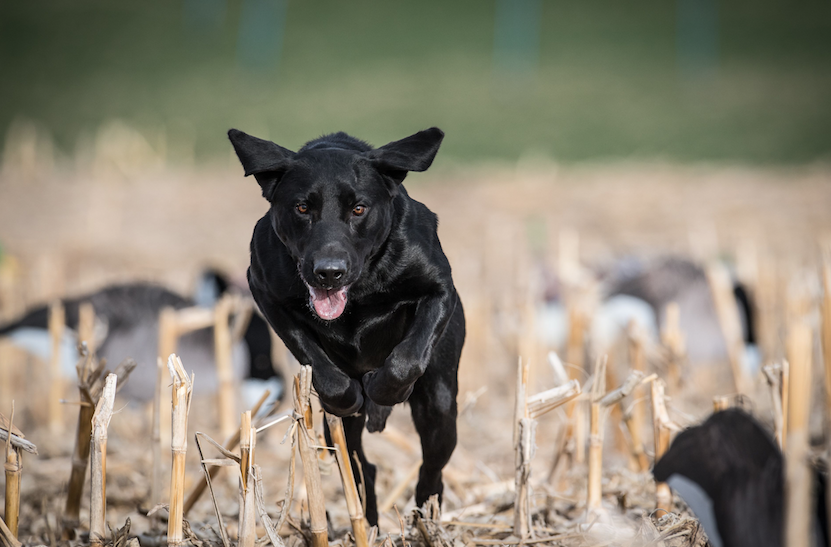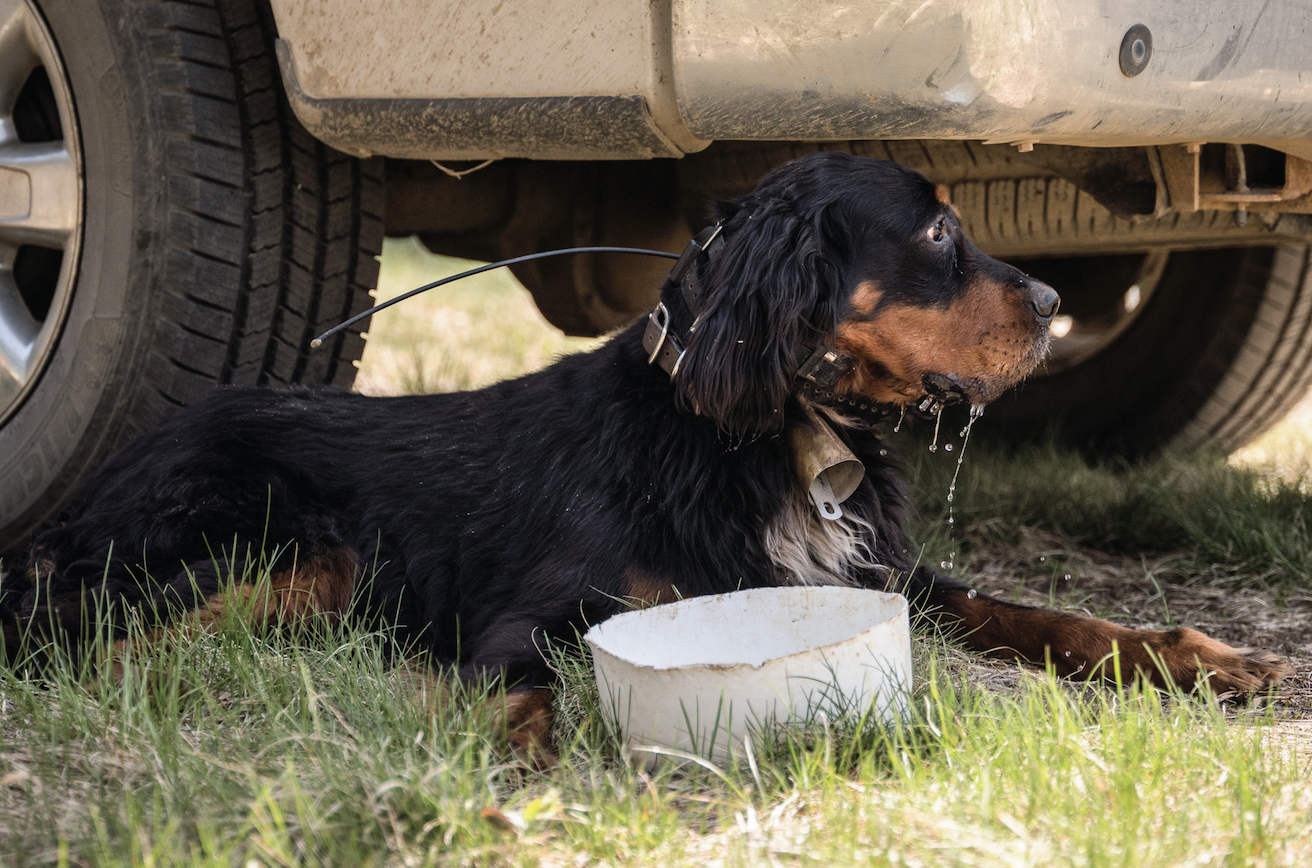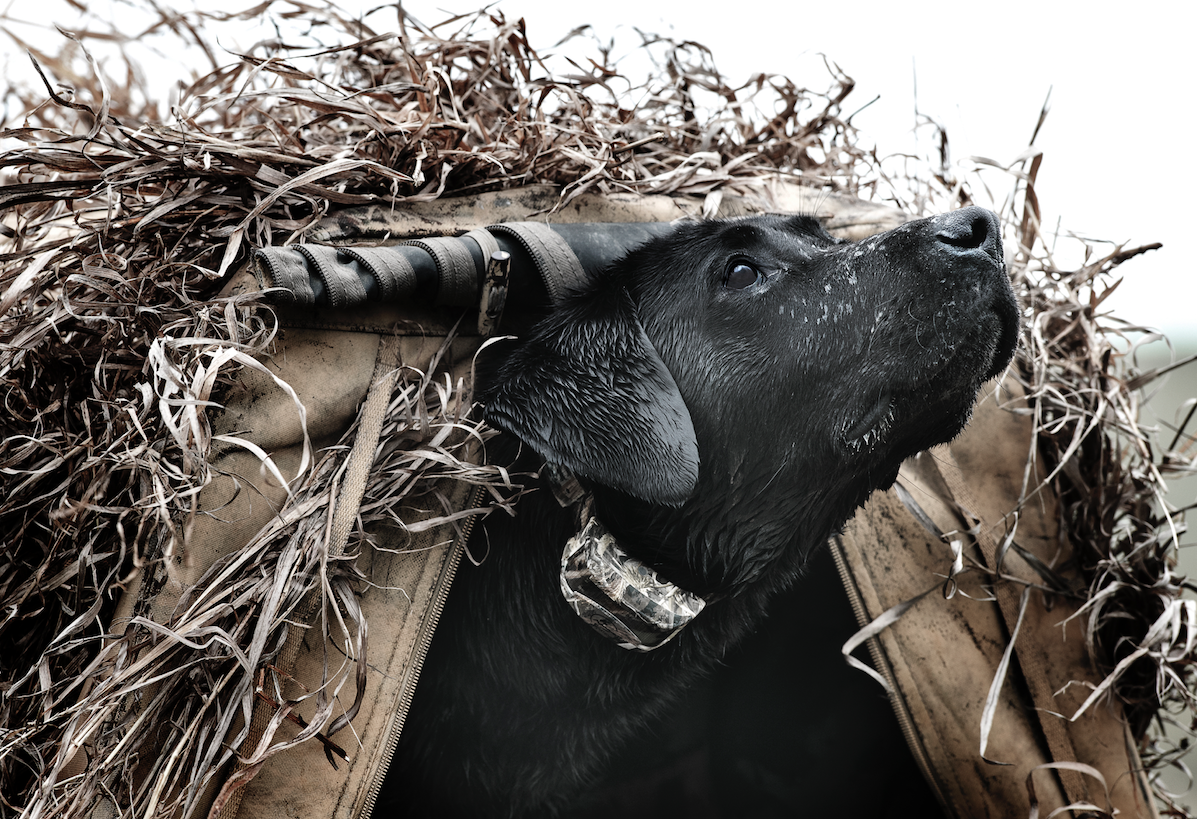Working in tough conditions can take a toll on our dogs. Fueling them with a diet optimized for their rigorous work helps them maximize their potential.
SPONSORED CONTENT
Sporting dogs should have plenty of preseason conditioning, especially if they are going to run in extreme conditions. With a combination of preseason conditioning, performance nutrition and determination, you and your hunting companion can be successful in almost any weather or terrain. This advice from leading experts will help keep your dog running strong when conditions are tough.
Fuel for the Cold
Some of the best hunting happens when it gets cold—really cold. Cold weather increases waterfowl migrations, and if you can find open water the chances are high you’ll also find lots of ducks and geese. In the uplands, a late season snowstorm can make wily roosters hold tight in their shelterbelt covers. Yet, there are real concerns for your gun dog when the mercury plunges, namely staying warm and fueled for the hunt.
“When temperatures drop, a dog becomes heavily reliant on nutrition to perform,” says Dr. Ira McCauley, a hardcore waterfowl hunter and Team Eukanuba veterinarian. “Running through snow and jumping into icy water puts a unique set of challenges on a dog. There is a daily struggle to keep a dog fueled up with the caloric requirements it needs.”
Our dogs burn an incredible amount of energy when they work in the cold. From swimming in frigid water to sitting in the wind, dogs need extra energy to help maintain their core body temperature. Feeding them a nutritionally dense diet with appropriate protein-to-fat ratios can help them maintain peak performance in rigorous conditions.
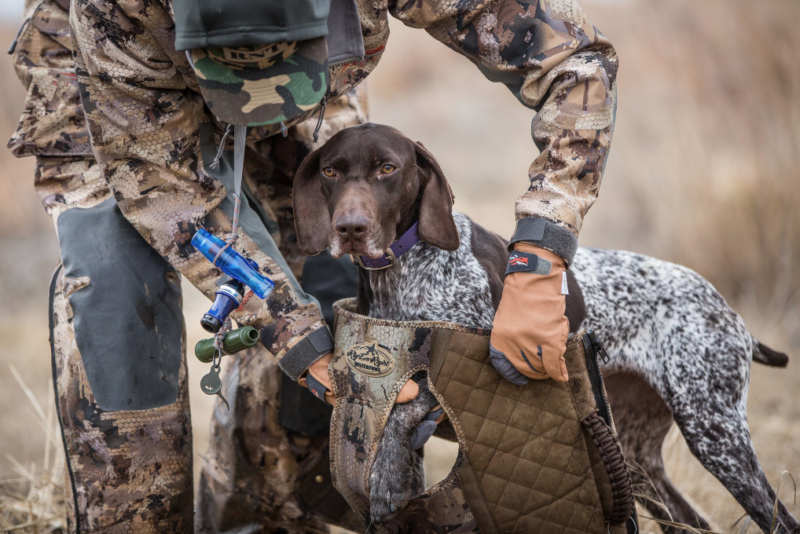
Feeding our dogs a nutritionally-dense diet with appropriate protein-to-fat ratios can help them maintain peak performance in rigorous conditions.
Fuel for the Heat
Heat is frequently more dangerous for a dog than the cold, especially because it can lead to both dehydration and heat stroke. “I don’t have as many issues with hypothermia (body temperatures below normal) as I do dogs with hyperthermia (body temperatures above normal),” says Dr. Joe Spoo, a Team Eukanuba veterinarian and passionate hunter. “When it’s hot the two things I want dialed in are my dog’s conditioning and nutrition.”
A properly conditioned dog is less prone to injury, and doesn’t have the extra layers of fat that can contribute to heat stroke. “As a veterinarian specializing in hunting dogs, I dread the end of summer because there are so many dogs that come in morbidly obese,” he says. “Those dogs are set up for health problems. Keeping a dog in condition throughout the year is so important, and especially during the early season.”
Making sure a dog has access to water is very important in the heat as are frequent rests in shady areas if possible. The adage “when there is water to drink dogs aren’t always thirsty, but when they are thirsty there isn’t always water to drink” holds true. Carrying plenty of water in your vest is an easy precaution. Keep in mind that humidity also plays a role. Knee-high thick cover isn’t a problem for us, but it can be a humid, stagnant jungle for your dog because thick cover traps humidity. Working closer to the ground, the conditions our dogs face can be drastically different than what we experience.
According to Drs. Spoo and McCauley, nutrition and conditioning are vitally important to sporting dogs throughout the year no matter the weather, but when things get tough they really make a difference.
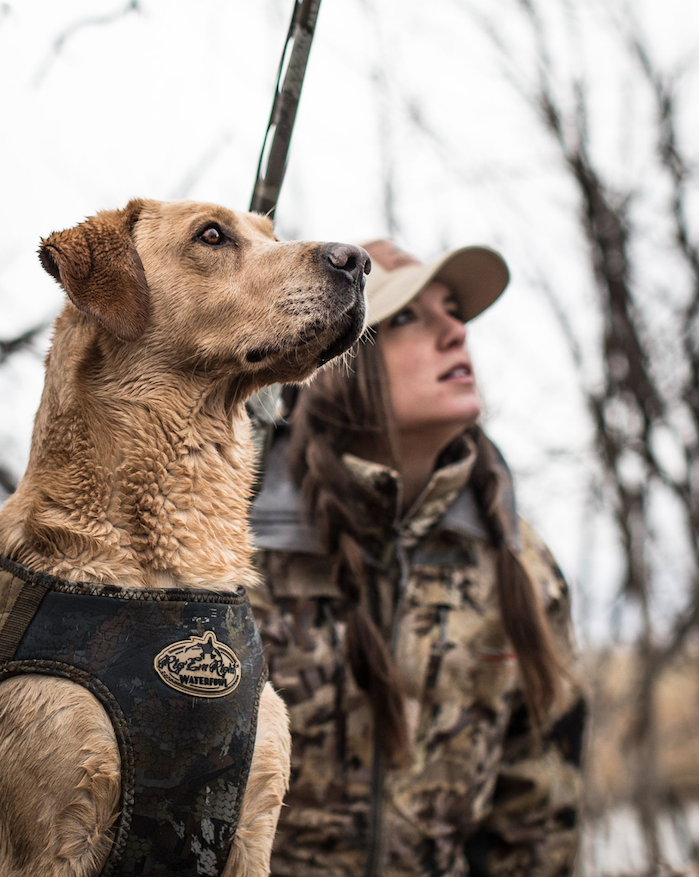
Beyond fueling muscles, we need to consider what a dog needs to rebuild and recover from the physical exertion of a hunt.
Recovering and Recharging
Rocky, hard terrain can wear on a dog’s joints from the continual impact of running. Dogs running in soft sand or through mud work harder than dogs running on normal ground. When making long retrieves, a Lab uses a wider range of muscles than during any other type of exercise. Beyond fueling muscles, we need to consider what a dog needs to rebuild and recover from the physical exertion of a hunt.
“Exercise is obviously healthy, but it can damage a dog’s body,” says Dr. Spoo. “Part of that damage is what we call oxidative stress, and when that builds up it can cause all sorts of problems for a dog.” A dog’s body naturally combats oxidative stress but including antioxidants in a dog’s diet also helps support post-exercise recovery.
“Things like chondroitin and glucosamine should be part of any performance diet because they help a dog that is pounding the cover and putting stress on his joints,” continues Dr. Spoo.
From rivers to lakes and on to fields and covers, we expose our dogs to tough conditions. When combined with varying, and sometimes extreme temperatures, these conditions can take a toll on our dogs. Preseason conditioning helps ensure they are ready for the challenges ahead. Fueling them with a diet optimized for their rigorous work helps them maximize their potential.

